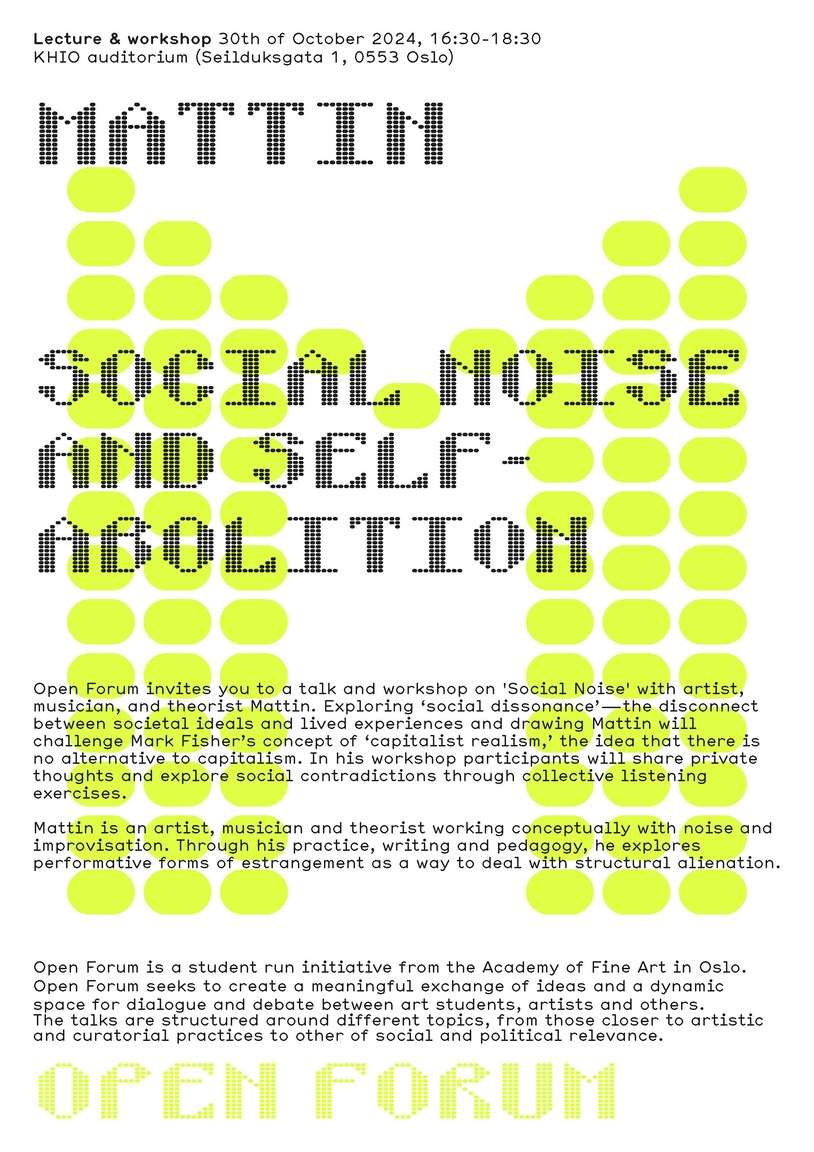Talk, Workshop

Mattin / Social Noise and Self-Abolition: Confronting the Catastrophic Reaction
Open Forum invites you to a talk and workshop on ´Social Noise´ with artist, musician, and theorist Mattin. Exploring ´social distance´´- the disconnect between societal ideals and lived experiences and drawing, Mattin will challenge Mark Fisher´s concept of ´capitalist realism´, the idea that there is no alternative to capitalism. In his workshop participants will share private thoughts and explore social contradictions through collective listening exercises.
Mattin is an artist, musician and theorist working conceptually with noise and improvisation. Through his practice, writing and pedagogy, he explores performative forms of estrangement as a way to deal with structural alienation.
Why is it so difficult to feel content in our society? This pervasive ‘social noise’—the dissonance between our ideals and lived realities—continually obscures our ability to confront today’s challenges directly. As the liberal conception of the individual disintegrates, leaving us subjectively homeless, we find ourselves clinging to an idea of the self that feels incapable of navigating the growing complexities of modern life.
This sense of enclosure, a symptom of what Mark Fisher describes as ‘capitalist realism,’ leads to frustration and inertia, stifling our capacity for meaningful change. But capitalist realism, along with various theories that tend to totalize the power of capital, needs to be challenged and have its theoretical limitations exposed. Capitalism reproduces itself through concrete, specific processes. Acknowledging this gives us some room to maneuver and explore. However, our self-conception must also be radically reconsidered.
In light of this, self-abolition—dismantling the very structures, identities, and institutions that bind us—offers a path to freedom. Can we truly overcome inequality and oppression by letting go of the roles and structures that sustain them? To start, we must recognize the social dissonance that permeates our lives—a cognitive dissonance between the values promoted by liberal Western societies, such as freedom, equality, democracy, and sustainability, and our participation in systems of inequality, exploitation, and environmental degradation.